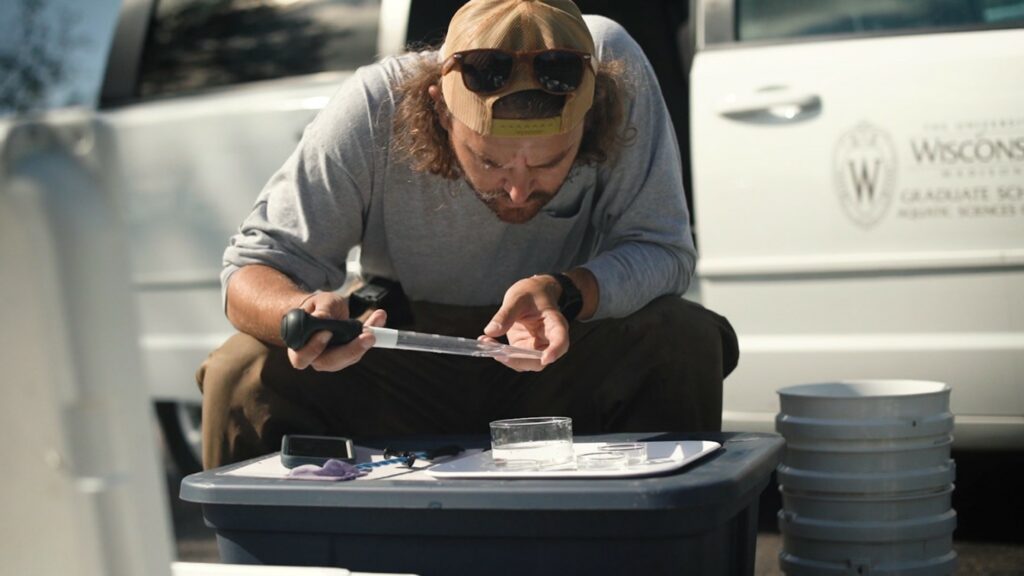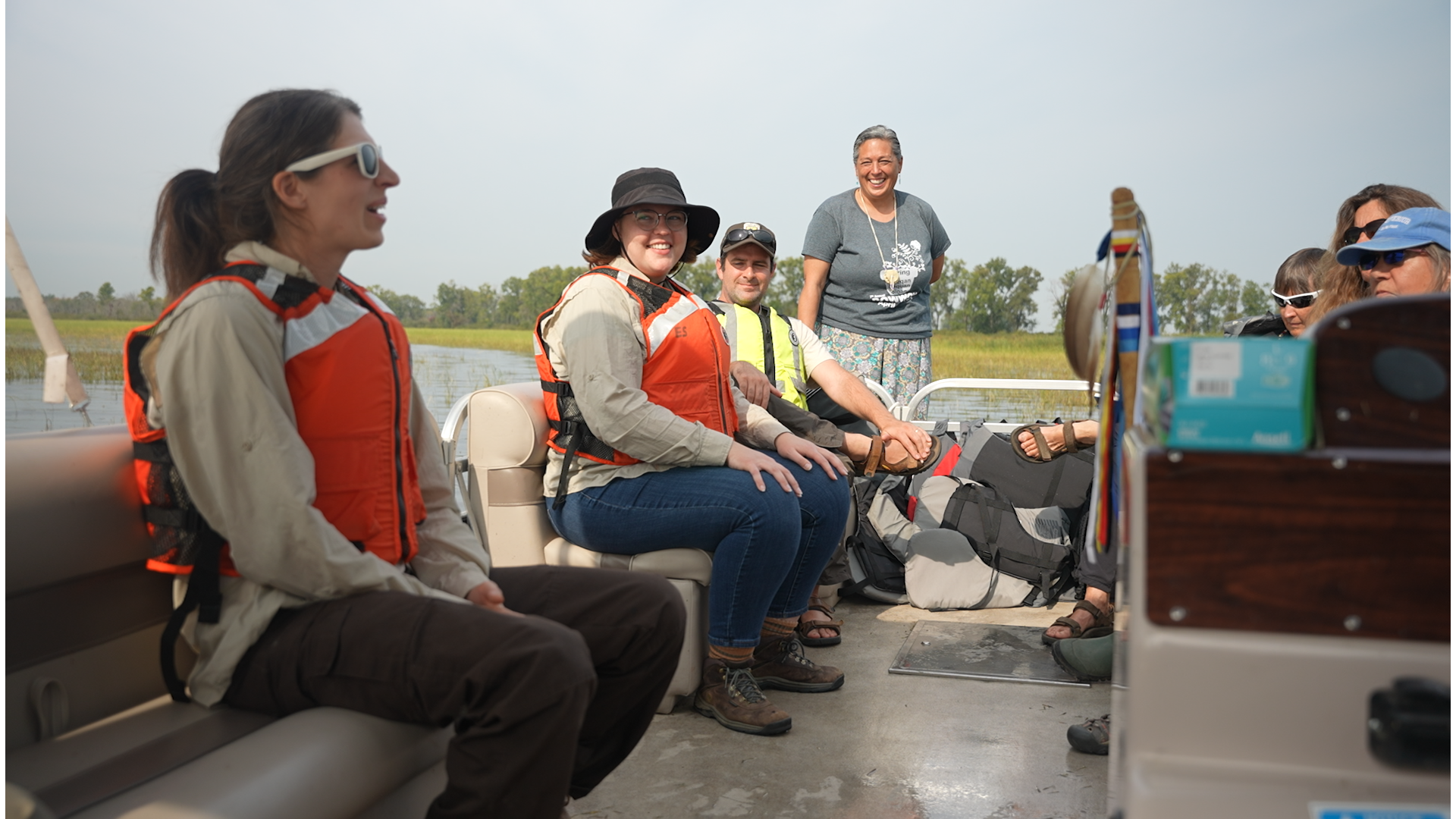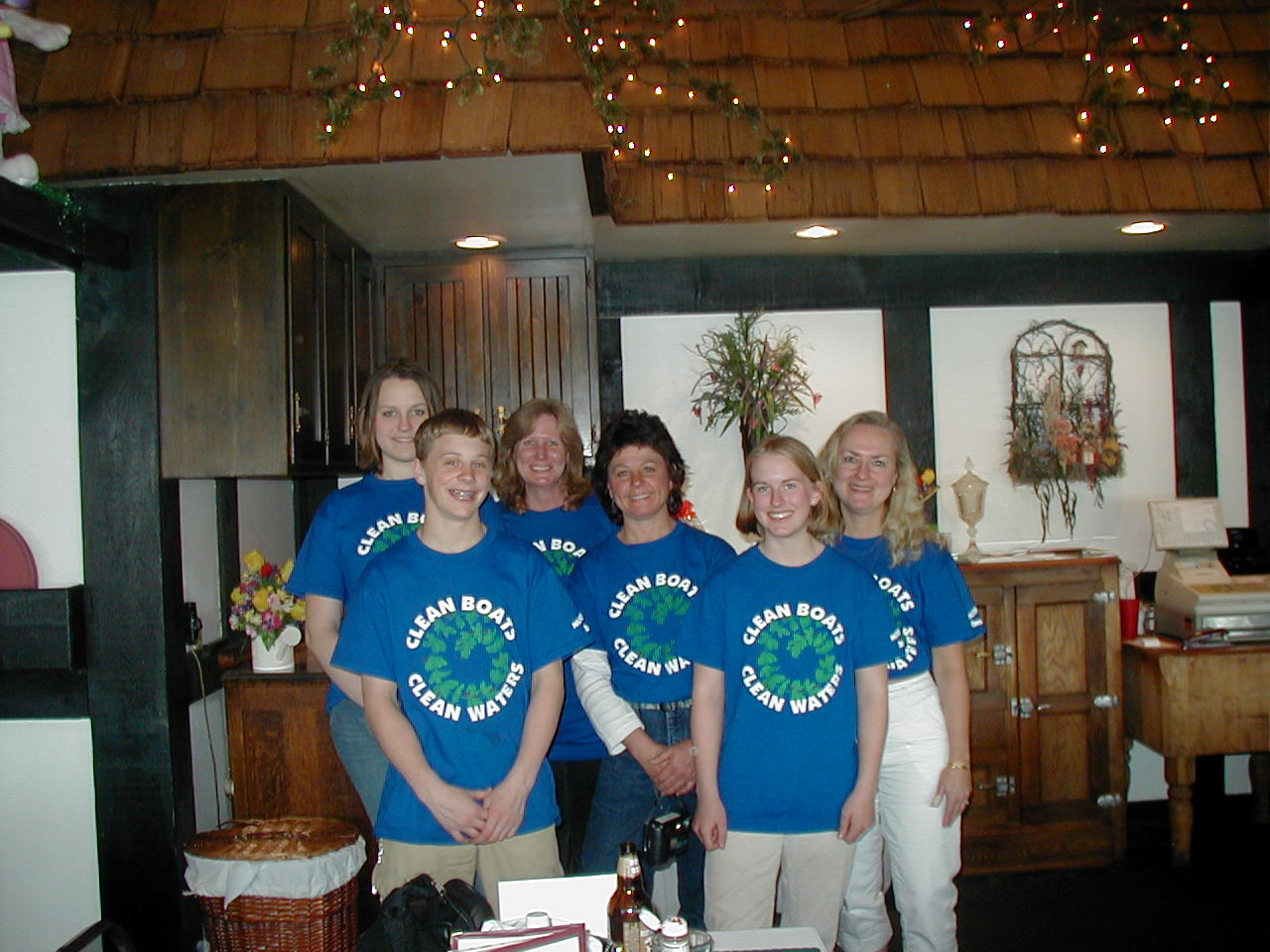
Caption: Gavin Dehnert, an emerging contaminants scientist at Wisconsin Sea Grant, investigates the impact of emerging contaminants on aquatic ecosystems. Photo Credit: Wisconsin Sea Grant.
Coastal and estuarine waters are important for human and ecosystem health. Contaminants of emerging concern (CECs) are regularly detected in these waters; however, little is known about how they are transported, where they accumulate and their final destinations. There is also a lack of research on the health risks they pose to humans and aquatic life. It is critical to continue to support ongoing monitoring efforts and to address knowledge gaps around CEC exposures, which Sea Grant has established with previous funding.
For the last four years, Congress has directed Sea Grant to collaborate with state agencies and universities to expand emerging contaminant research and monitoring. Sea Grant is pleased to announce two projects receiving approximately $984,000 in federal funding in 2024. These projects were competitively selected through an opportunity focused on CECs. The projects, detailed below, will lead regional research competitions in the Southeast and Great Lakes regions focused on addressing CEC information needs.
2024 project descriptions:
Wisconsin Sea Grant
Quantifying the health impacts of emerging and legacy contaminants on an apex bird predator in the Great Lakes region
Federal funding: $484,400
Project lead: Christina Remucal and Gavin Dehnert
Wisconsin Sea Grant plans to sample bald eagle nestlings, game fish and water from areas in Wisconsin, Minnesota and Michigan known to have per- and polyfluoroalkyl substances (PFAS) contamination. Researchers anticipate elevated PFAS levels near historical contamination sites and expect varying levels in game fish, which could lead to updating fish consumption guidelines. This study will inform long-term monitoring and bioremediation efforts and provide insights into the potential health impacts on both humans and wildlife. The findings will benefit local communities, including tribal nations, by offering updated fish consumption recommendations and contributing to future PFAS research.
The National Sea Grant Law Center
Strengthening and expanding regional CEC initiatives to promote research-to-application partnerships
Federal funding: $500,000
Project lead: Stephanie Otts
The National Sea Grant Law Center will assess and address the risks posed by contaminants of emerging concern to local communities through an interdisciplinary approach that involves both science and outreach. They will provide funding to the South Carolina Sea Grant Consortium for research projects through their contaminants grant program and will support partnership development in the Great Lakes and Southeast regions through a competitive grant process. The expected outcomes include a better understanding of the types, prevalence and movement of contaminants in the Southeast, stronger collaboration between researchers and policymakers in both regions, the creation of research-to-application partnerships that can serve as future models, and improved integration of research into policy decisions.





